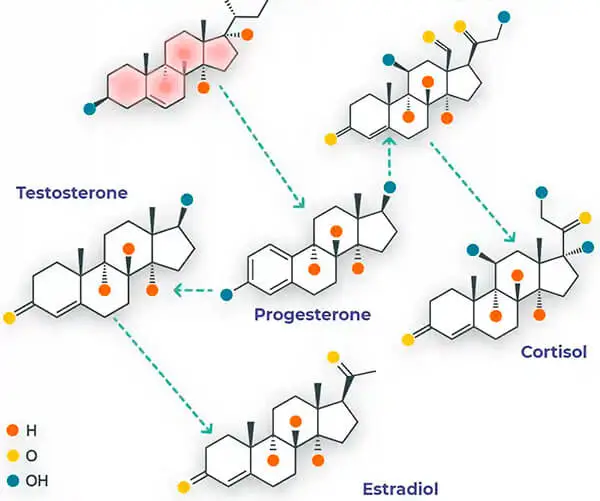Synthetic Hormones vs. Bioidentical
By Dr. Stephen Cosentino
PRESIDENT OF EMPIRE MEDICAL TRAINING
Two different forms of hormones may be used in anti-aging medicine: synthetic hormones and bioidentical hormones.
Synthetic hormones don’t occur naturally in the body, while bioidentical hormones do. Despite considerable evidence that synthetic hormones produce similar outcomes when used to treat age-related conditions like menopause and general signs of aging, patients tend to report better outcomes with bioidentical hormones.
Some studies also suggest that synthetic hormones are associated with higher risk of potentially serious side effects, including cancers.
So, should you avoid synthetic hormones in favor of bioidentical hormones? That’s a question to ask your medical provider — but before you do, you need the facts about synthetic hormones vs. bioidentical hormones.
What Are Synthetic Hormones?
Synthetic hormones are hormones that are not naturally produced in the human body. Their molecular structures differ from comparable natural hormones, and they may have different physiological effects as well. Once ingested, the body changes their molecular structure so that they can be used.
Synthetic hormones are often derived from animal hormones, including conjugated equine estrogens (Premarin®). Others, such as medroxyprogesterone (Provera®), are derived by other means. Synthetic hormones are typically manufactured and marketed by pharmaceutical companies and regulated by the U.S. Food and Drug Administration.
What Are Bioidentical Hormones?
Bioidentical hormones have the same molecular makeup as hormones produced in the human body. Common examples include estradiol, estriol, and progesterone.
Taking a bioidentical hormone doesn’t mean taking hormone that was once in someone else’s body. Every batch of bioidentical hormone is produced in a compounding pharmacy as part of a personalized bioidentical hormone replacement therapy plan, or by a pharmaceutical company regulated by the FDA.
Results of Synthetic vs. Bioidentical Hormone Therapy
More research is needed on the real-world results of synthetic hormone treatment vs. bioidentical hormone treatment. However, studies suggest patients are more satisfied with the outcomes of bioidentical hormone treatments.
Not only are bioidentical treatments better at achieving optimal hormone levels and treating specific complaints, but they appear to have fewer serious risks as well. Notably, progesterone appears to be associated with a lower risk of breast cancer than progestin, a common synthetic alternative to treat menopause symptoms.
Risks of Hormone Therapy: Bioidentical vs. Synthetic
Some experts disagree that bioidentical hormones or traditional hormones are safer than synthetic hormones. But many aesthetic and anti-aging medicine practitioners observe an increased risk of side effects in people who take synthetic hormones over the long term, including serious health risks like endometrial cancer and breast cancer.
Bioidentical hormone replacement therapy also has risks; no anti-aging therapy is risk-free. However, because bioidentical hormones can be customized to each patient, they align better with the personalized treatment plans so important in anti-aging therapy.
The biggest risk with bioidentical hormones is the lack of FDA regulation of compounding pharmacies. If your provider recommends using compounded bioidentical hormone, it likely will come from a facility that’s not subject to FDA safety and quality controls.
Whether you choose synthetic or bioidentical hormones, always work with an experienced, board-certified medical provider. Your provider should have comprehensive instruction in the differences between synthetic hormones vs bioidentical and their respective uses in aesthetic medicine (and the certification to prove it). Ideally, they should have completed an accredited, comprehensive anti-aging training program for aesthetic medicine practitioners as well.


